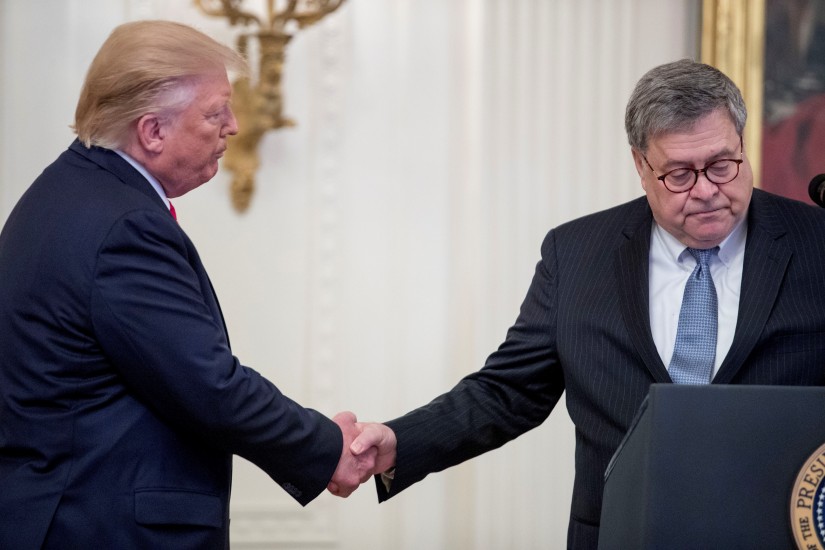I have Article II, where I have the right to do whatever I want as president,” Donald Trump said in a recent speech to a far-right-wing campus organization. Trump is not a constitutional scholar, and he would not care at all about “constitutional architecture” were he not president. So where did this sweeping claim to executive power come from?Trump's claims are largely motivated by self-interest, as all of Trump's motivations begin with "self,” rather than any doctrinal belief. Congressional investigations may expose his venality and perhaps criminality, so Trump will fight them tooth and nail.
But for Trump's attorney general, William Barr, and others on the right, the effort to take power for the president from the courts and especially from Congress has been a 40-year project. Barr and his comrades may find statements like “I have Article II” crass and narcissistic, but in their view Trump is generally correct. Executive power maximalists argue that the “original intent” of the framers of the Constitution was to create a strong president with concentrated power and a largely advisory Congress.
The historical evidence for that argument is exceedingly thin.
Yet Trump and Barr alike will adopt any means necessary to defeat challenges to presidential power, which even includes false testimony under oath by senior administration officials in judicial proceedings, as was the case in the failed effort to justify a citizenship question on the 2020 census. The claim to presidential power that may be most dangerous to democracy is the power to ration information to Congress and the American people. Neither Congress nor the courts nor voters can effectively check power abused in secret. And Congress's power to require information from the president may be the power most difficult to reclaim if Congress yields that power in a tactical retreat in advance of the 2020 election.
For Barr, this central confrontation with Congress over Congress's power to investigate represents unfinished business.
AN ABUNDANT BODY OF LAW and democratic thought, some eloquently stated, supports the power of Congress to inform itself and the American people. Congress first demanded information from the executive branch in George Washington’s first term, after a disastrous military expedition to the nation’s far-western frontier, Ohio. Many members of Congress, such as Representative James Madison, had been delegates to the Constitutional Convention and knew the framers’ “original intent.”
“The power of inquiry has been employed by Congress throughout our history,” Supreme Court Justice John Marshall Harlan wrote in 1959, “over the whole range of the national interests concerning which Congress might legislate or decide upon due investigation not to legislate; it has similarly been utilized in determining what to appropriate from the national purse, or whether to appropriate. The scope of the power of inquiry, in short, is as penetrating and far-reaching as the potential power to enact and appropriate under the Constitution.”
A prominent American political scientist, Woodrow Wilson, said that the “informing function of Congress should be preferred even to its legislative function.” Congress's “proper duty,” Wilson said, is “to look diligently into every affair of government and to talk much about what it sees. It is meant to be the eyes and the voice, and to embody the wisdom and will of its constituents.” If Congress is derelict in that duty, then “the country must be helpless to learn how it is being served.”
The Reagan administration upended this rough consensus, bringing in a cadre of rightist lawyers to the Justice Department and the White House with what were then seen as fringe views on presidential power. (To most legal scholars, those views are still fringe.) Barr was one of their number. Barr worked in the White House on legal policy for 16 months in Reagan's first term.
The lawyers favored a much stronger presidency. They argued that the presidency had been stripped of proper constitutional powers in the aftermath of Watergate, but their proposals went well beyond reversal of post-Watergate reforms. Edwin Meese, the attorney general and most influential lawyer in the Reagan administration, questioned the constitutionality of independent agencies and suggested that the president could disregard Supreme Court decisions with which the president disagreed.
